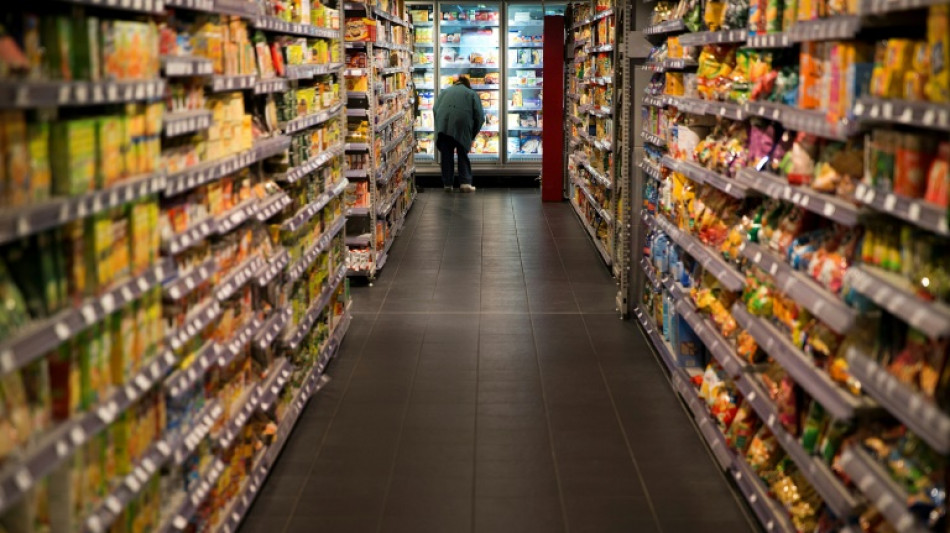
-
 Vonn to provide injury update as Milan-Cortina Olympics near
Vonn to provide injury update as Milan-Cortina Olympics near
-
France summons Musk for 'voluntary interview', raids X offices

-
 Stocks mostly climb as gold recovers
Stocks mostly climb as gold recovers
-
US judge to hear request for 'immediate takedown' of Epstein files

-
 Russia resumes large-scale strikes on Ukraine in glacial temperatures
Russia resumes large-scale strikes on Ukraine in glacial temperatures
-
Fit-again France captain Dupont partners Jalibert against Ireland

-
 French summons Musk for 'voluntary interview' as authorities raid X offices
French summons Musk for 'voluntary interview' as authorities raid X offices
-
IOC chief Coventry calls for focus on sport, not politics

-
 McNeil's partner hits out at 'brutal' football industry after Palace move collapses
McNeil's partner hits out at 'brutal' football industry after Palace move collapses
-
Proud moment as Prendergast brothers picked to start for Ireland

-
 Germany has highest share of older workers in EU
Germany has highest share of older workers in EU
-
Teen swims four hours to save family lost at sea off Australia

-
 Ethiopia denies Trump claim mega-dam was financed by US
Ethiopia denies Trump claim mega-dam was financed by US
-
Norway crown princess's son pleads not guilty to rapes as trial opens

-
 Russia resumes strikes on freezing Ukrainian capital ahead of talks
Russia resumes strikes on freezing Ukrainian capital ahead of talks
-
Malaysian court acquits French man on drug charges

-
 Switch 2 sales boost Nintendo profits, but chip shortage looms
Switch 2 sales boost Nintendo profits, but chip shortage looms
-
China to ban hidden car door handles, setting new safety standards

-
 Switch 2 sales boost Nintendo results but chip shortage looms
Switch 2 sales boost Nintendo results but chip shortage looms
-
From rations to G20's doorstep: Poland savours economic 'miracle'

-
 Russia resumes strikes on freezing Ukrainian capital
Russia resumes strikes on freezing Ukrainian capital
-
'Way too far': Latino Trump voters shocked by Minneapolis crackdown

-
 England and Brook seek redemption at T20 World Cup
England and Brook seek redemption at T20 World Cup
-
Coach Gambhir under pressure as India aim for back-to-back T20 triumphs

-
 'Helmets off': NFL stars open up as Super Bowl circus begins
'Helmets off': NFL stars open up as Super Bowl circus begins
-
Japan coach Jones says 'fair' World Cup schedule helps small teams

-
 Equities and precious metals rebound after Asia-wide rout
Equities and precious metals rebound after Asia-wide rout
-
Do not write Ireland off as a rugby force, says ex-prop Ross

-
 Winter Olympics 2026: AFP guide to Alpine Skiing races
Winter Olympics 2026: AFP guide to Alpine Skiing races
-
Winter Olympics to showcase Italian venues and global tensions

-
 Buoyant England eager to end Franco-Irish grip on Six Nations
Buoyant England eager to end Franco-Irish grip on Six Nations
-
China to ban hidden car door handles in industry shift

-
 Sengun leads Rockets past Pacers, Ball leads Hornets fightback
Sengun leads Rockets past Pacers, Ball leads Hornets fightback
-
Waymo raises $16 bn to fuel global robotaxi expansion

-
 Netflix to livestream BTS comeback concert in K-pop mega event
Netflix to livestream BTS comeback concert in K-pop mega event
-
Rural India powers global AI models

-
 US House to vote Tuesday to end shutdown
US House to vote Tuesday to end shutdown
-
Equities, metals, oil rebound after Asia-wide rout

-
 Bencic, Svitolina make history as mothers inside tennis top 10
Bencic, Svitolina make history as mothers inside tennis top 10
-
Italy's spread-out Olympics face transport challenge

-
 Son of Norway crown princess stands trial for multiple rapes
Son of Norway crown princess stands trial for multiple rapes
-
Side hustle: Part-time refs take charge of Super Bowl

-
 Paying for a selfie: Rome starts charging for Trevi Fountain
Paying for a selfie: Rome starts charging for Trevi Fountain
-
Faced with Trump, Pope Leo opts for indirect diplomacy

-
 NFL chief expects Bad Bunny to unite Super Bowl audience
NFL chief expects Bad Bunny to unite Super Bowl audience
-
Australia's Hazlewood to miss start of T20 World Cup

-
 Bill, Hillary Clinton to testify in US House Epstein probe
Bill, Hillary Clinton to testify in US House Epstein probe
-
Cuba confirms 'communications' with US, but says no negotiations yet

-
 Iran orders talks with US as Trump warns of 'bad things' if no deal reached
Iran orders talks with US as Trump warns of 'bad things' if no deal reached
-
From 'watch his ass' to White House talks for Trump and Petro


Ultra-processed foods a rising threat to health: researchers
Researchers warned Wednesday that rising global consumption of ultra-processed foods (UPFs) poses a major threat to health, calling for countries to subject some products made by huge food companies to marketing restrictions and taxes.
The international team of researchers also pushed back against criticism of their work on UPFs, saying efforts to "manufacture scientific doubt" on the subject were similar to tactics used by the tobacco industry.
There has been intense debate in scientific circles about UPFs, with some health and nutrition experts raising concerns that the term is vaguely defined and that more research is needed.
However, leading UPF researchers argued in The Lancet medical journal that these foods present too great a danger to wait any longer, calling for action.
In the first of three papers, the researchers reviewed 104 previous studies, demonstrating that eating a diet with a lot of UPFs is linked to a higher risk of a range of diseases, including obesity, diabetes, heart problems and early death.
The second paper showed that the consumption of UPFs is increasing around the world -- and already represents more than half of all calories eaten in the United States, Australia and the UK.
The third blamed a handful of massive corporations for altering global diets in recent decades by using aggressive marketing to sell products made with cheap ingredients and industrial methods.
Eight UPF manufacturers -- Nestle, PepsiCo, Unilever, Coca-Cola, Danone, Fomento Economico Mexicano, Mondelez, and Kraft Heinz -- accounted for 42 percent of the sector's $1.5 trillion in assets in 2021, the paper said.
The authors called for nations to introduce warnings on package labels, restrict marketing -- particularly advertisements aimed at children -- and tax certain UPFs, using the money to make fresh food more affordable for low-income households.
- Are there healthy UPFs? -
The researchers said they welcomed "valid scientific criticisms" of the Nova classification system developed by Brazilian epidemiologist Carlos Monteiro, the lead author of the first study.
The Nova system, which separates food into four categories from the least to most processed, has come under scrutiny for not taking into account nutrients known to be unhealthy such as fat, salt and sugar.
This has meant that food traditionally thought to be healthy -- such as fake meat products, plant-based milks and some breads and canned vegetables -- could be considered ultra-processed.
The researchers acknowledged the important role played by fat, salt and sugar, calling for future research to isolate the effect of ultra-processing in foods such as flavoured and plain yoghurts.
Almost all existing UPF research reviewed by the team was observational, which means it cannot directly establish cause and effect.
The precise mechanism for how UPFs cause such a wide range of health problems also remains unclear.
The researchers laid out numerous theories, including that UPFs contain a higher density of calories than fresh food, provoke overeating by combining elements such as fat and sugar, can be consumed more quickly because they are softer, or potentially contain harmful additives.
- 'Beyond time to act' -
Chris van Tulleken, a co-author of the second paper and author of the bestselling book "Ultra-Processed People", accused scientists who have criticised UPF research of often having ties to the food industry.
"We see tobacco industry tactics playing out this morning, in fact, while we're on this call," he told an online press conference on Tuesday.
The second paper's lead author, Phillip Baker of the University of Sydney, accused the UPF industry of "targeting the scientists, and the science, attempting to manufacture scientific doubt".
Hilda Mulrooney, a nutritionist at Kingston University London, not involved in the research, told AFP the team made a compelling case.
"Clearly, the authors of these papers are predisposed in favour of Nova since they created it," she said, adding that more research is needed to identify the exact mechanisms that UPFs could be causing harm.
However, "given the disproportionate risks of chronic disease to the most disadvantaged groups and the costs of a poor diet to individuals, healthcare systems and finances, it is beyond time to act" on UPFs, she said.
J.AbuHassan--SF-PST



